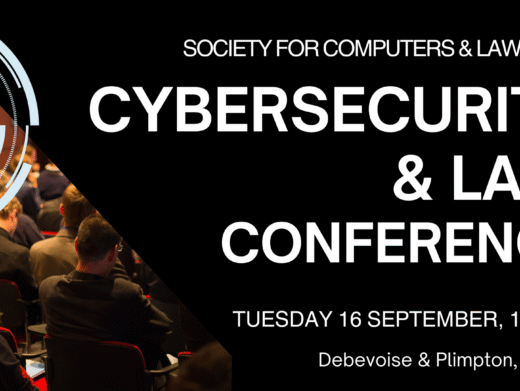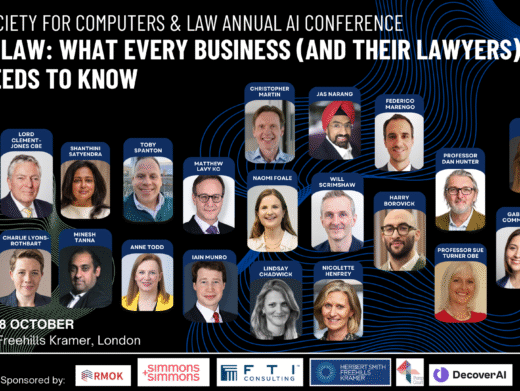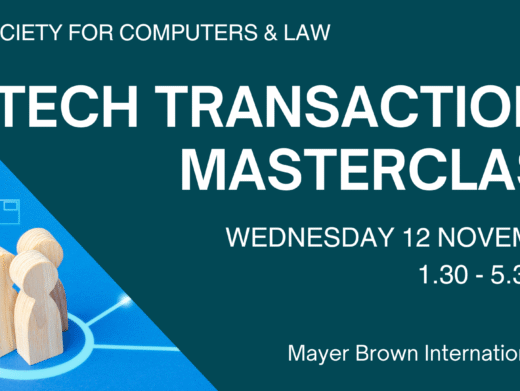SCL hosted an online event looking at how the music, video game and film industries have changed and the effect that digital has had.
Raffaella De Santis – Music Lawyer at Harbottle & Lewis
Raffaella started the event with a fascinating insight into past and future forms of digital disruption in the music industry. She began her talk with a discussion of how music and innovation have always been hand in hand since sound was recorded. However, more recently there has been a shift in how music and other forms of media are consumed from ownership to access and from centralised to decentralised.
Raffaella took us through a timeline of innovation in the music industry. Starting with the first human voice recording made by a phonautograph in 1860, to the launch of iTunes in 2001 to today where we have a highly digitised, fragmented, innovative market with plenty of choice for consumers. In looking at how we have arrived at streaming, she highlighted the rise of file sharing platforms such as Napster, BitTorrent and LimeWire as part of the reason why revenues from CDs and Vinyl fell from an all-time high to real time loss of over 8 billion dollars in 7-8 years. In 2011, streams overtook physical sales for the first time and has consequently helped to propel a return to growth for recorded music.
Spotify
Raffaella then discussed Spotify as a company that despite having only one core business (as opposed to Apple and YouTube with more diverse revenue streams) has an innovative business model that keeps users coming to its platform. Some of the innovations it has adopted are:
· A free tier: bringing in users who would have otherwise used piracy to obtain their music, by allowing them access to a vast, easy to navigate library of music;
· Genre playlists: removing labels from genres and consuming music playlists without radios;
· Auto play: removing actively having to search for music and replacing it with an algorithm that finds music for you;
· Creating brands and celebrities out of playlists: playlists like Discover Weekly allowing creative playlists from taste makers; and
· Personalisation of music consumption; functions like Spotify’s [YEAR] Unwrapped allowing you to see your data but also allowing Spotify to obtain a wealth of behaviour data to use on future products and services.
Return to growth
Raffaella explained how innovations like these have allowed a return to growth in music. However, while the industry is growing, there is a notable chorus who feel that the economics of streaming aren’t working and the revenue share isn’t fair. In the UK there is currently a campaign around the commercial and ethical impacts of streaming. Certain platforms are driving users to platforms algorithmically leading to a question whether these are causing ever positive circles. More popular artists are receiving a greater share of consumption and revenue with the reverse for less popular artists.
2020
Raffaella noted how the pandemic, Brexit and the cessation of freedom of movement between UK and Europe has had a great impact on the music industry. Despite this, a digital renaissance has bolstered the music industry.
What is next for innovation and disruption in the music industry
Raffaella finished her talk with an insight into the new disruptors to look for in the music industry, including among others:
· Voice Activation and Car Activated Technologies forming part of the internet of things of having a digitised life.
· NFTs coming out of the blockchain sphere are authenticated files which allow the owner to own the provenance of the file. This will bring questions of IP regarding who owns the underlying IP in the file. The application of NFTs is particularly relevant for the music industry through the scarcity model enabling VIP access, meet and greets.
· AI presenting issues where we have music created by technology. There is a real potential for AI to impact digital rights holders with questions of who owns the copyright to AI generated content. Currently under copyright law a human only is capable of being an author of copyright but this may have to change.
Mohummad Mia (Senior Legal and Business Affairs Manager at Sony Interactive Entertainment Europe) & Greg Ruback (Media Entertainment Lawyer at Bristows, formerly at Paramount Pictures & Warner Bros)
Mohummad and Greg led the second half of the talk with an interesting discussion between themselves regarding the digital disruption in the film and gaming industries.
Changes in the film industry as a result of digital disruption:
Greg initiated the discussion around film by saying that we have seen a steady decline in physical media (DVDs, Blu-ray discs) coupled with huge growth for TV and Film content. The film industry initially saw players such as Love Film disrupt the physical video rental market and squeeze Blockbuster out of the market. The nail in the coffin was the evolution of VLOD platforms and streaming platforms as consumers no longer had to go down to the high street and were able to download films with the touch of a button.
Mohummad asked Greg whether the death of physical DVDs is round the corner? He replied that from a rental perspective, the death of physical DVDs was seen a long time ago. Last year was the first year in US where the digital downloads outstripped the sale of physical copies, meaning DVD and Blue-ray discs are being forced out of the marketplace completely by the likes of Google and Apple.
Is there still a space for cinema theatrical releases?
Greg explained his belief that there is still a market for cinema releases and movies. He highlighted the huge impact on cinema admissions as a result of streaming services like Netflix and Amazon. This has been felt more closely amongst the art-house, mid-budget films that have now been squeezed out of the cinema. The major studios will be less affected by the disruption as a cinema theatrical release is still at a competitive price as a form of entertainment. When compared to eating out or going to a concert, paying £10/£15 is good value, so Greg concluded that he thinks there is still a market to exploit, particularly amongst the big budget releases. It is difficult to replicate the same type of viewing experience for a big budget release that one gets in the cinema and we shouldn’t underplay the desire of the public for a communal experience especially for big cult series like Marvel.
Historically, there has been a requirement for films to have been released in cinemas before getting nominated at award ceremonies. The rules on this are changing to recognise impact of the higher quality films.
How has the pandemic affected the film industry?
The pandemic has acted as a catalyst, Greg explained that the film industry has seen a shift in the major studios releasing films on direct streaming services (as there are already backlog of movies for release).
Disney released Mulan on premium VOD on Disney Plus and Warner Bros released Wonder Woman 4 on HBO Max. The pandemic has given the studios a trial to test out a new distribution model. The studios have been able to reduce the theatrical window before films go out to DVD, which was initially met with resistance by the exhibitors who have an exclusive period.
The exhibitors have now not been able to push back on this so aggressively e.g. Warner Bros have released all their new movies on HBO Max and this been accepted by exhibitors. Greg explained that we are seeing a shift to a direct to consumer model which gives more access to data which ultimately leads to more subscribers. It has also allowed the films to stay front and centre of consumer minds for a more prolonged period of time, rather than going through the traditional process of jumping through certain hoops before films end up on streaming platforms. However, Greg does not believe it is the death of cinema just yet.
Disruption in the Gaming Industry:
Mohummad explained that physical sales are still a significant proportion of sales in the games industry. The main shift has been with the way people interact with games. The physical games were generally previously single player games but there has now been a shift to a multiplayer environment. The first experience was FIFA 03/04. We have not seen the same growth in streaming within the games industry due to lag issues with different internet bandwidths.
However, the shift to a multiplayer environment has created offshoots as people stream themselves playing the game which has created gaming influencers. We have also seen a rise in gaming social spaces, for example people can now interact within Minecraft and Fortnite. The gaming industry is now seeing a further shift in the social sphere where celebrities such as Travis Scott host virtual concerts in Fortnite.
Despite a lot of disruption, the devices used for gaming have stayed the same: PC, mobile, consoles. We are still seeing consoles being sold so Mohummad concluded that does not believe the retail gaming industry is dead yet.
Isabella Ramchandani and Sam Georgevic are Trainee Solicitors at Harbottle & Lewis




